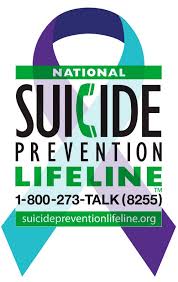I woke up this morning to the news of another celebrity death from suicide. Suicide affects people of all ages, genders, ethnicities and so on. Suicide does not discriminate. I want to give you some facts:
- In the year 2016, almost 45,500 suicides occurred in the United States

- Not all people who commit suicide have a known mental health condition
- Studies show that those with cancer are at about double the risk of committing suicide than the general population
As a health care practitioner it makes me wonder how many of the patients I cared for may have contemplated taking their own lives and no one on the health care team had any idea.
Being diagnosed and treated for cancer is stressful to say the least. I am in no way shocked that this could lead to anxiety, depression and other life changing issues. We as oncology care providers are not always the best at providing care outside of our oncology specialty. But please, always remember that even if we are not the best at providing the care that you need, we can guide you in the right direction to get the help you need.
If you are feeling depressed, anxious or suicidal, please, please, please contact your health care provider. He or she can connect you with the help you need in the form of a social worker, a chaplain, a psychologist, psychiatrist, etc. There are options such as therapy, support groups, medications, and so on that can be helpful to you.
I’m going to end this blog with the National Suicide Prevention Lifeline phone number. My hope is that if you need this phone number that you will use it.
National Suicide Prevention Lifeline: 1-800-273-8255